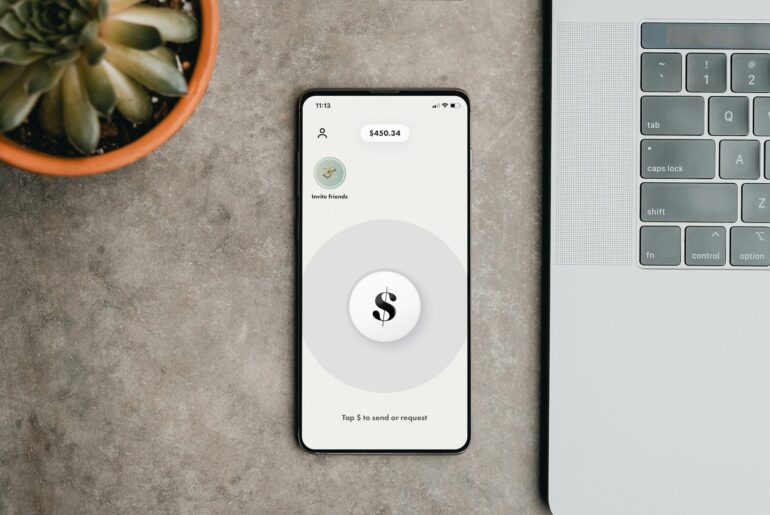This article may contain references to products or services from one or more of our advertisers or partners. We may receive compensation when you click on links to those products or services. Nonetheless, our opinions are our own.
Key Highlights
- A payout typically refers to the distribution of money, assets, or benefits.
- Common sectors where you’ll encounter payouts include loans, insurance, and investments.
- Understanding payout ratios, terms, and conditions is crucial for making informed decisions.
- Insurance payouts provide financial support to policyholders who experience covered events.
- Investment payouts like dividends and share buybacks offer returns to investors.
- Loan payouts, although not technically payouts, involve the disbursement of funds to borrowers.
Introduction
In finance, the word “payout” comes up a lot. Many people wonder what it really means. A payout is simply the distribution of money or assets. This usually happens as part of a financial agreement or deal. Payouts can come from investments, insurance policies, or loan payments. Knowing about payouts is important for understanding personal finance. In this blog post, we will look at different situations where payouts are important.
Understanding Payouts in Financial Contexts
The idea of a payout can change based on financial conditions. Basically, it means moving money from one person to another as a return, payment, or settlement. When you put money into an investment, a payout might mean you get dividends or profits back.
In a different situation, an insurance payout happens when you experience a loss that is covered, like an accident or damage to your property. Then, the insurance company gives you money to help. In both cases, payouts show that a financial promise has been met or that benefits have been shared.
Defining Payouts Across Different Sectors
Let’s look at how payouts work in different areas.
- Insurance: An insurance payout is the money an insurance company gives to a policyholder after a claim is approved. It offers financial protection during unexpected events.
- Investments: Payout ratios help evaluate a company’s financial health. The payout ratio is a percentage showing how much money a company gives to its shareholders as dividends.
- Loans: While not technically a payout, loan disbursements refer to when borrowed funds are distributed to a borrower.
The Role of Payouts in Financial Health
Payouts play an important role in a person’s or a company’s financial health. For individuals, payouts from investments create a consistent income. Also, insurance payouts can act as a vital support system during tough times, helping to avoid financial trouble.
Companies use payouts to draw in and keep investors. Dividends are a great way to encourage investors to keep their shares and be part of the company’s success. A good payout plan can also show financial strength, which boosts trust in the market.
Navigating payouts can be easy, even for those who are new to money matters. It’s important to learn the right things and understand what affects payouts in different situations.
What You Need to Know Before Diving In
Before you look at different payout options, it’s important to understand the terms used. If you are unsure about something, feel free to check dictionaries or financial glossaries for clear definitions.
Next, you should think about your financial goals and how much risk you are comfortable with. Are you looking to earn passive income, protect yourself from unexpected situations, or grow your wealth over time? Your money goals will influence the types of payouts you focus on.
Step 1: Identifying Your Payout Sources
Start by thinking about any financial products or investments you have. Do you have an insurance policy that pays out if you have an accident or get sick? Do you own stocks that provide dividends, or are you thinking about investing in companies that buy back their shares?
Common payout sources:
- Investments: Dividends, interest payments, capital gains.
- Insurance: Health, property, or life insurance payouts.
- Retirement Accounts: 401(k) withdrawals, pension payouts.
Step 2: Understanding the Terms and Conditions
Carefully reviewing the terms and conditions associated with your payouts is a must. For investment payouts, pay attention to factors like the dividend payout ratio, dividend payment dates, and any requirements for reinvesting dividends.
| Term | Definition |
|---|---|
| Dividend | A portion of a company’s profits that is distributed to shareholders. |
| Payout Ratio | The percentage of a company’s earnings paid out as dividends to shareholders. |
| Ex-Dividend Date | The date on or after which a buyer of a stock is not entitled to receive the next dividend payment. |
For insurance payouts, carefully examine the policy documents to understand coverage limits, deductibles, and any exclusions or limitations that may apply. Be aware of the claims process and any documentation required to file a claim successfully.
Conclusion
In conclusion, knowing about payouts in loans, insurance, and investments is important for your financial health. Payouts are key to shaping your financial well-being and future security. By finding out where your payouts come from and understanding the rules, you can handle this part of finance better. Whether you are dealing with insurance claims, getting money back from investments, or paying back loans, knowing the details can help you make smarter choices. Stay informed to sidestep problems and improve your financial results. If you want to boost your financial knowledge more, check out our useful resources and FAQs about payouts.
Frequently Asked Questions
What Determines the Size of a Payout in Insurance Claims?
The amount of money you get from an insurance payout depends on details in your policy. This includes the coverage amount, the type of loss, deductibles, and any limits that may apply. The payout aims to help the beneficiary recover financially from the covered loss.
How Do Investment Payouts Work and What Affects Them?
Investment payouts, like dividends or share buybacks, come from a company’s net income. The payout ratio shows how much of net income is shared with investors. This ratio affects the amount of money investors get. The total dividends or funds set aside for share buybacks directly change the payout amount.
Can Loan Repayments Be Considered as Payouts?
Loan repayments are not really seen as payouts. Payouts usually mean getting something back from an investment or getting paid for a service. Loan repayments are different. They are simply when a borrower pays back the money they borrowed.
What Are Some Common Mistakes to Avoid With Payouts?
Common problems with payouts are not checking the terms and conditions, making errors in calculating payout amounts, or ignoring the tax effects of payouts. For freelancers, not keeping track of income and expenses related to payouts can also harm their overall money situation.

Reviewed and edited by Albert Fang.
See a typo or want to suggest an edit/revision to the content? Use the comment form below for feedback.
At FangWallet, we value editorial integrity and open collaboration in curating quality content for readers to enjoy. Much appreciated for the assist.
Did you like our article and find it insightful? We encourage sharing the article link with family and friends to benefit as well - better yet, sharing on social media. Thank you for the support! 🍉
Article Title: Payout Meaning: How It Applies to Loans, Insurance, and Investments
https://fangwallet.com/2025/04/02/payout-meaning/The FangWallet Promise
FangWallet is an editorially independent resource - founded on breaking down challenging financial concepts for anyone to understand since 2014. While we adhere to editorial integrity, note that this post may contain references to products from our partners.
The FangWallet promise is always to have your best interest in mind and be transparent and honest about the financial picture.
Become an Insider
Editorial Disclaimer: The editorial content on this page is not provided by any of the companies mentioned. The opinions expressed here are the author's alone.
The content of this website is for informational purposes only and does not represent investment advice, or an offer or solicitation to buy or sell any security, investment, or product. Investors are encouraged to do their own due diligence, and, if necessary, consult professional advising before making any investment decisions. Investing involves a high degree of risk, and financial losses may occur including the potential loss of principal.
Source Citation References:
+ Inspo












































